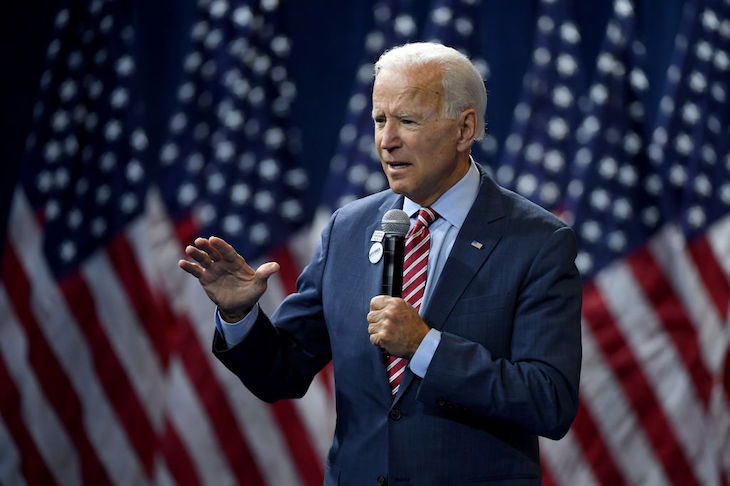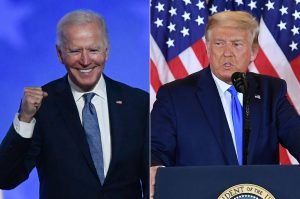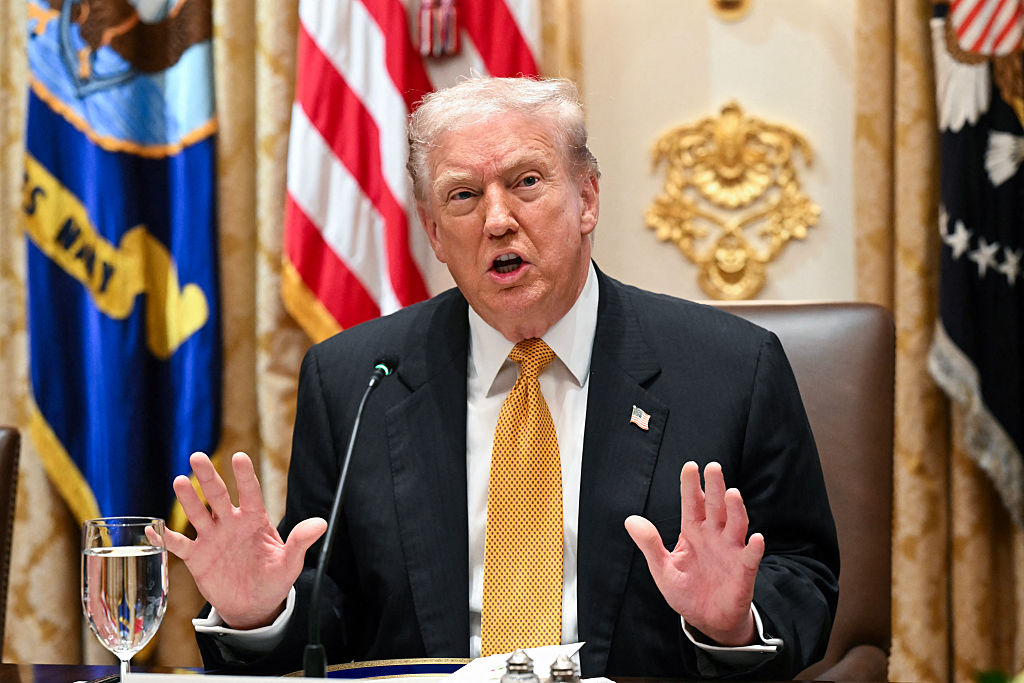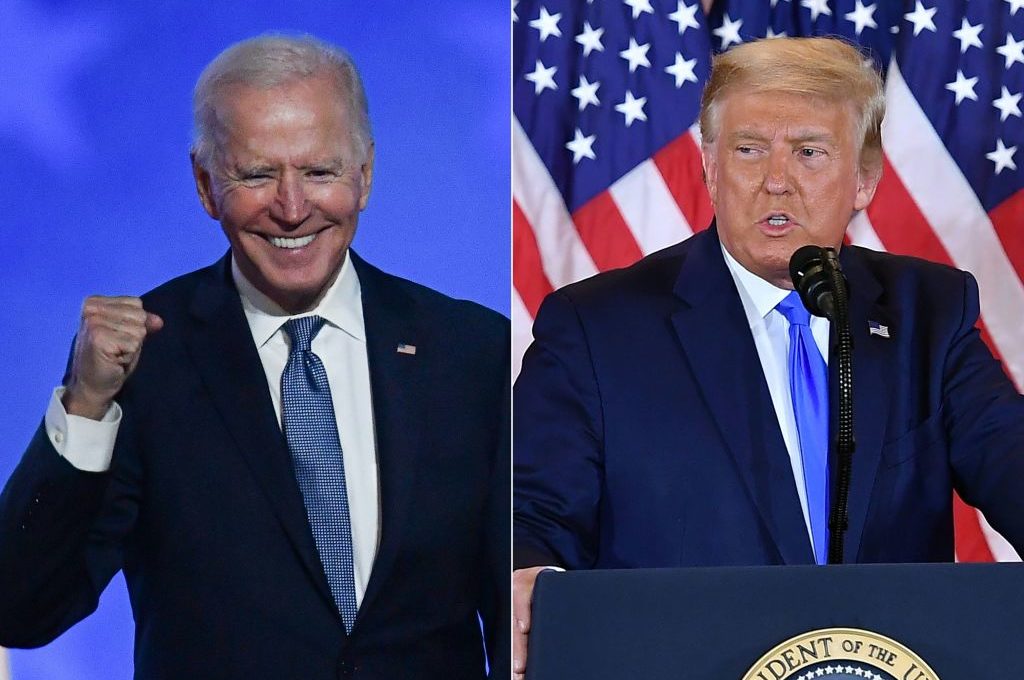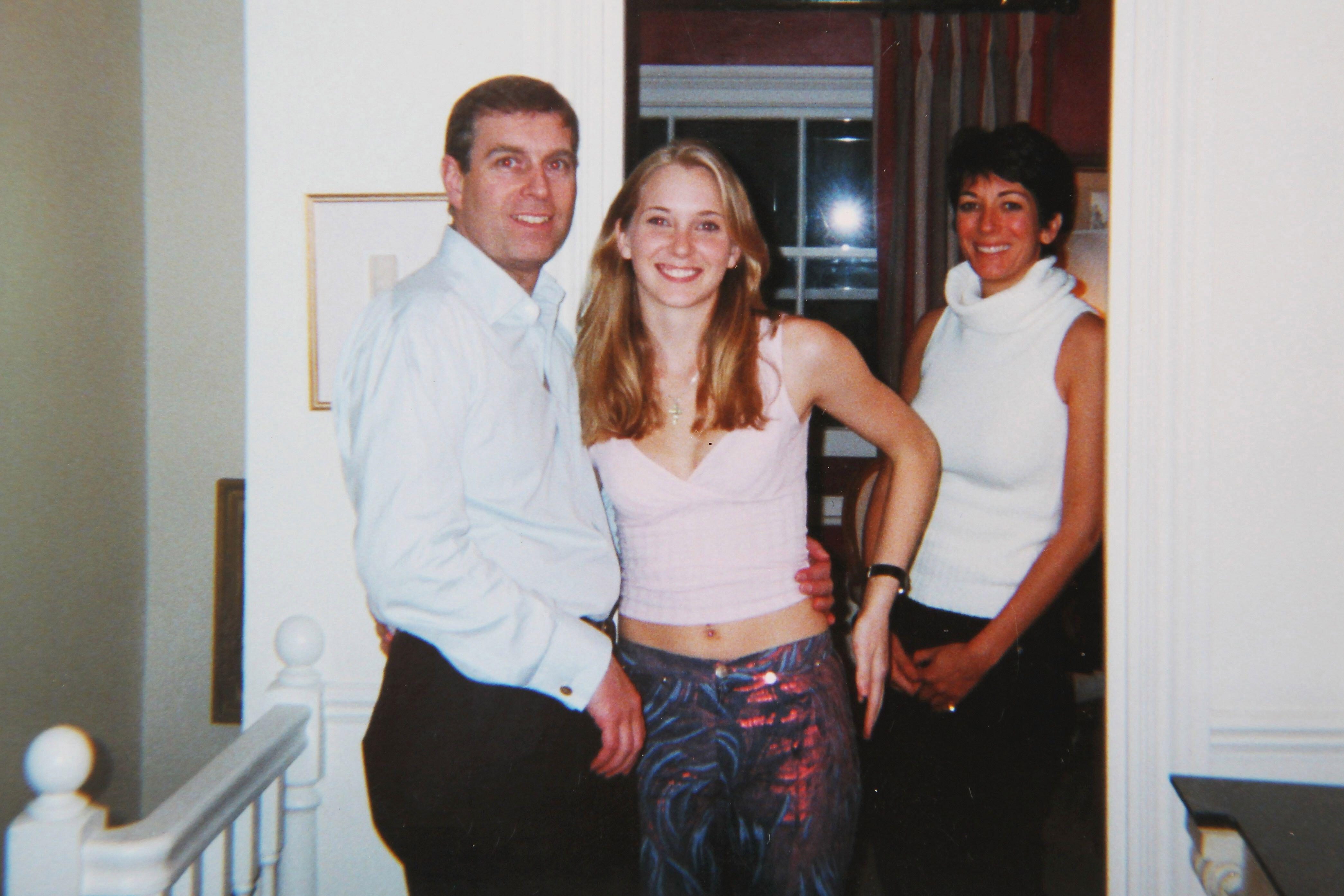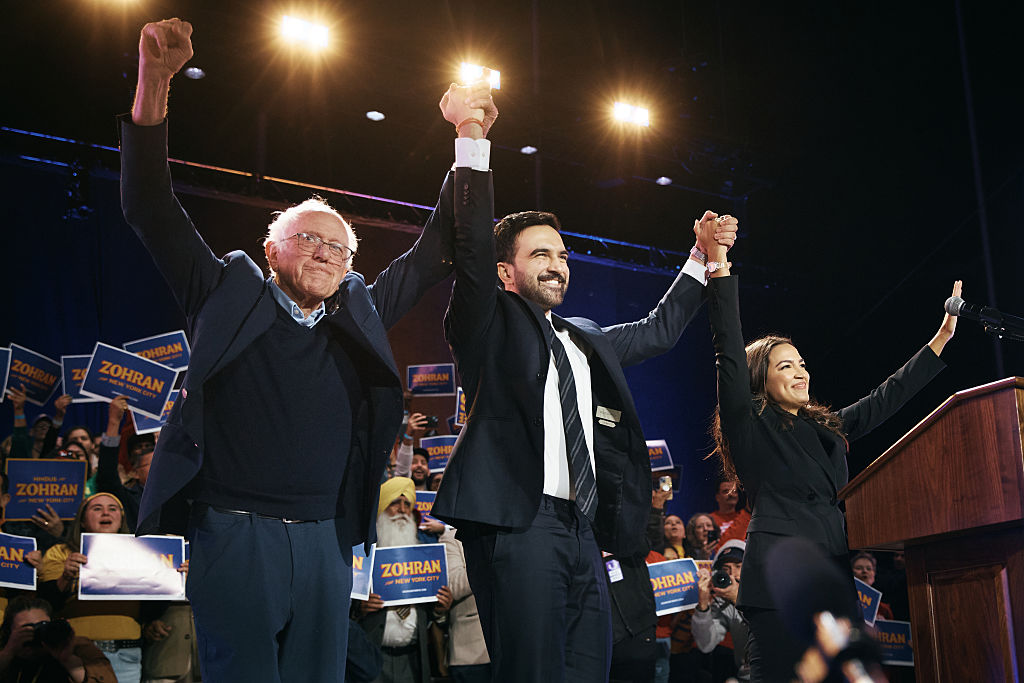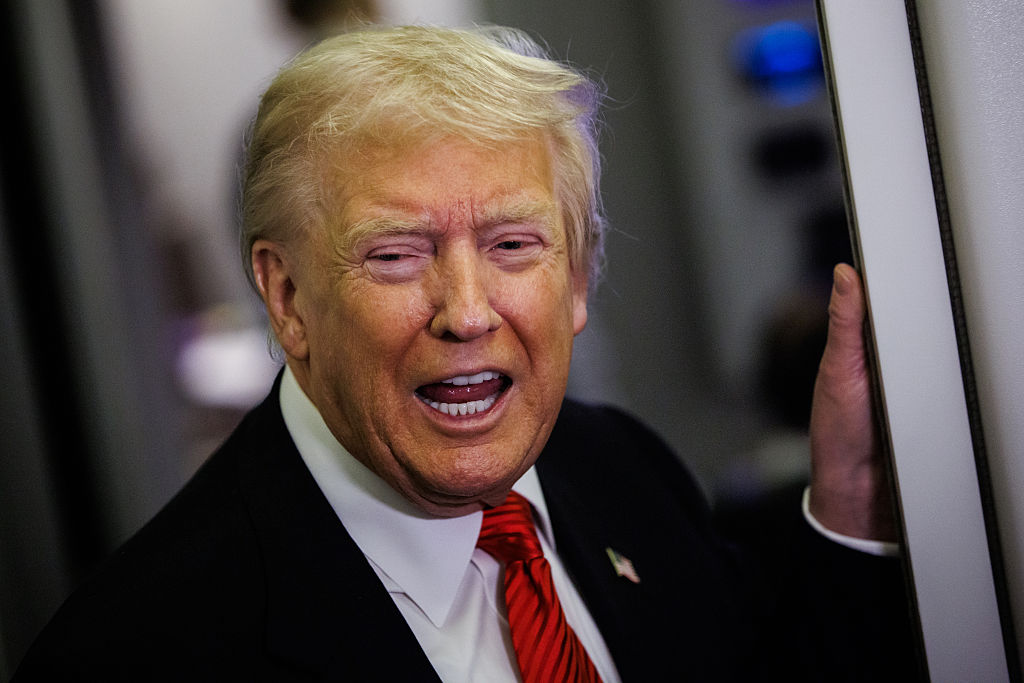Bernie Sanders suffered a heart attack, but Joe Biden’s campaign may be the casualty. The 78-year-old Sanders’s physical condition renewed concerns about the 76-year-old Biden’s mental acuity, which had been temporarily scuppered by President Trump’s phone etiquette. Before the Ukrainian controversy, even former president Jimmy Carter hinted Biden had passed his expiration date. Biden’s rivals openly questioned whether his inexact grasp of facts, stilted speech, and apparent memory issues stemmed from his status as a mid-septuagenarian.
As with most politicians’ analyses, they properly identify the problems but misjudge their cause and cure. Biden’s hazy habits are not products of senility; they stem from his status as a former idol of America’s cult of youth worship.
This may sound impossible to believe for those who have only known Biden from memes likening him to Jeff Dunham’s curmudgeonly dummy Walter. But in his prime, Biden seemed to hold all the promise and imagination of the emerging baby boomers. He received adulatory media coverage to match. Glowing profiles extolled his brilliance, physical fitness, even his ability to ‘satisfy [his wife] in bed.’ And he based his 1988 presidential campaign on representing a new generation.
Joe Biden entered politics at age 29, the fifth-youngest person ever elected to the US Senate. (The youngest was Andrew Jackson’s protégé, John Henry Eaton of Tennessee, in 1818.) During the Senate campaign, Biden used his magic age as if it were a wand against the 63-year-old Republican incumbent. One Biden ad read: ‘Cale Boggs’ generation dreamed of conquering polio. Joe Biden’s generation dreams of conquering heroin.’ (Advantage: Boggs.)
Biden’s 1972 campaign settled on the slogan, ‘Joe Biden. He understands what’s happening today.’
The media assured the message could not be missed. The most important newspaper in his area, The (Wilmington) News Journal, reported that ‘Biden relies on youthful drive to put him across,’ and ‘younger men get that “new hero” look when Biden raps about how the old guard has bungled things.’ Another profile called Biden ‘extremely handsome,’ the living ‘photograph of a great statesmen in his youth.’
A life-altering car accident six weeks after his election cemented his status as a tortured young genius. Comparisons to the Kennedy family, which began during the ’72 campaign, intensified after the tragedy. A 1974 feature by Kitty Kelley (yes, that Kitty Kelley) which touted him as ‘Washington’s most eligible bachelor,’ revealed that an exhausted Biden would still find time to please his wife sexually after a long day of campaigning, and described how a star-struck elementary teacher asked Biden to address her class because he was ‘their Jack Kennedy.’
Even as a freshman senator, Biden never entertained false modesty. ‘I know I can be a good president,’ said Biden at the ripe old age of 31, while still constitutionally ineligible to serve. Much like the 29-year-old Alexandria Ocasio-Cortez in our day, Biden defended voting to raise his own pay, boasting, ‘I don’t know about the rest of you, but I am worth a lot more than my salary of $42,500 a year in this body.’ (And, like AOC, Biden also hyped his modest earnings before entering Congress.) Even his most conspicuous routine – catching the train home from Union Station every evening – kept him from putting in the long hours demanded of other senators.
The youth culture promoted and celebrated Biden for his youth rather than his accomplishments, producing his shallow knowledge, vanity, and continual reference to physical feats of glory (like alternately threatening to ‘beat the Hell’ out of our president and challenging him to a push-up contest, or recounting tales of staring down a Baltimore street tough named Corn Pop).
He passed on a 1984 presidential run but knew his time was coming. To be sure he was ready for his close-up, Biden reportedly underwent a procedure that was state-of-the-art in the 1980s: He got hair plugs. Then he threw his hat in the ring.
Biden dubbed his first presidential campaign in 1988 the ‘clarion call for my generation.’ His 1987 announcement speech has all the characteristics for which Biden is derided today: vapid idealism, loquaciousness, even the misuse of the word ‘literally.’
‘This generation of Americans … literally [has] the chance to shape the future – to put our own stamp on the face and character of America,’ he said. ‘It is our destiny.’
Biden actually just missed being a baby boomer, but no matter. He long whiffed on specificity. ‘I think the issues are merely a vehicle to portray your intellectual capacity to the voters,’ he said in 1974. ‘The central issue of my campaign — and I used all the issues from busing to the war to the economy, crime, and prison reform — was to convince the people that I was intelligent and honest.’
Listening to Biden’s stump speeches moved Mario Cuomo to say the Delaware senator had a ‘dumb blond’ problem. Perhaps out of sensitivity to this charge, Biden told reporters in 1987 that he graduated in the top half of his class at Syracuse University. Unfortunately, he finished 76th out of 85 students. When cornered by a questioner, he boasted, ‘I think I probably have a much higher IQ than you do, I suspect’ — but not high enough to avoid the plagiarism that would derail his campaign.
A chastened Biden returned to the Senate, where he forged an identity as a reliable liberal who wrestled with his Catholic conscience on abortion. (He usually retained the youthful vitality to overcome it and, facing the political realities of 2019, finally subdued it completely.) He distinguished himself by quizzing Republican appointees about the minutiae of foreign policy, then privately confessing, ‘I didn’t know the answers to those questions, either.’
He seemed to value a policy’s creativity over its consequences. For instance, he responded to 9/11 by saying, ‘Seems to me this would be a good time to send, no strings attached, a check for $200 million to Iran,’ the world’s leading state sponsor of terrorism. That kind of brainstorming failed to ignite his 2008 presidential campaign.
Then he got tapped as the running mate for a 47-year-old rhetorical powerhouse whose ‘hope and change’ campaign slogan may as well have been ‘tabula rasa.’ Biden’s (undeserved) image as ‘middle class Joe’ from lily-white Scranton was meant to render Obama more acceptable to the Democratic party’s older, working class base. But the political principle of commutation means the relationship works in both directions. Today, Biden hugs his association with ‘Barack’ like a bank robber clutches a human shield while hoping to inch his way toward the getaway car.
If it works, more’s the pity. America’s Founding Fathers, as the flower of Western civilization, believed one’s mind had to mature into its full powers before someone could demand others follow it. Celebrating youth qua youth ignores the purpose of young adulthood. Passing through the channel of youth should shape our future life, but this is impossible if not a single one of our courses gets diverted by the banks and boundaries of inherited wisdom. Rather than being educated, today’s generation spent its childhood being affirmed and its adulthood demanding to be celebrated.
To learn where the road of unearned praise leads, they may turn their eyes upon 76-year-old Joe Biden. The result is vacuous, empty, and uninspiring. And foreign controversies can only keep it viable for so long.
Fortunately for Biden, his opponents grew up in this environment; he merely found himself caught up in it. He may yet be able to draw from the reserves of decency the Greatest Generation deposited in the culture of his childhood.
If so, score one for age. If not, chalk up Joe Biden as the oldest victim of America’s celebration of youth.
Rev. Ben Johnson is managing editor of the Acton Institute’s flagship quarterly, Religion & Liberty, and editor of its transatlantic website. His views are his own.



